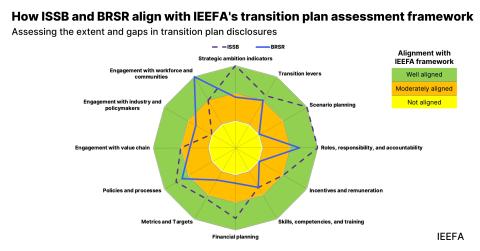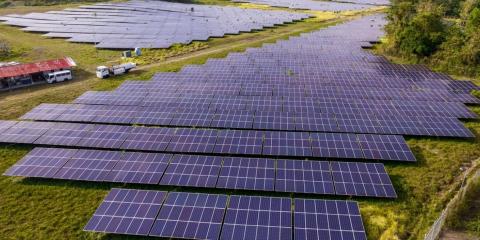Multibillion-dollar oil scandal goes unaddressed in PREPA contract reform and privatization
Download Full Report
View Press Release
Key Findings
PREPA’s history with the oil industry is characterized significantly by a long-standing scheme to sell low-quality oil at high-quality prices.
It is clear that PREPA’s over-dependence on expensive oil has been a major factor in PREPA’s march to physical and financial ruin over the past decade. The need to transition away from oil has been acknowledged by PREPA and the Financial Oversight and Management Board.
At the same time, PREPA has been plagued by weak management and political interference that have led to poor budgeting practices and numerous contracting irregularities.
Executive Summary
The single largest expense in the operating budget of the Puerto Rico Electric Power Authority (PREPA) is its purchase of oil to fuel the agency’s power generation plants.
From 2002 through 2017, PREPA fuel purchases (predominantly oil) totalled $27.7 billion.
The oil companies and traders who received this revenue effectively controlled PREPA's operations for decades—and in fact still do so—benefiting from corruption and management negligence to a degree that has not been well understood outside Puerto Rico.
At the heart of the scandal reviewed in this paper was a fraudulent scheme by which PREPA bought low -quality oil at high-quality prices for perhaps as long as 30 years. A Puerto Rico Senate investigation has recommended that the fraud in question be prosecuted. Consumers are pursuing a class action suit for damages, and this report recommends that bondholders also pursue claims.
PREPA is playing a pivotal role in Puerto Rico’s rebuilding effort after the island was devastated by hurricanes in the fall of 2017, and the fate of Puerto Rico hinges on the fate of PREPA. A law enacted in June 2018 to privatize PREPA via a series of asset sales and concessions must be understood in the context of the oil industry’s fight to maintain its political and economic control over Puerto Rico’s electricity system.
The Institute for Energy Economics and Financial Analysis has examined the history of the contractual relationship between PREPA and the oil companies with which it does business; lessons learned from the procurement and budget process in question; and how efforts to reform the process so far have failed. Although the weaknesses in the agency’s procurement and contracting processes are clear, they are not addressed in the recently-enacted privatization law ostensibly designed to transform PREPA.
Instead, the new law and other contracting reforms spurred by a 2017 executive order, provide a fresh opening for outside fossil fuel interests to continue to effectively control PREPA. Despite the fact that PREPA’s current fiscal plan, recently certified by the Financial Oversight and Management Board for Puerto Rico (FOMB), sees PREPA’s overreliance on fossil fuels as financially unsustainable, operational reforms proposed by both the Legislature and the governor only perpetuate unaccountable contracting and budgeting processes. These processes are tethered to global oil interests abetted by politicians in Washington that have consistently acted against the interests of Puerto Rico.
IEEFA’s principal findings:
- From 2002-2014, PREPA paid over $23 billion for fuel deliveries, and fuel costs have represented 39%-61% of PREPA’s annual operational expenses.
- PREPA’s Fuel Office played a pivotal role in a scheme that paid oil suppliers top dollar for poor-quality oil. The scheme, which began to come to light over a decade ago in a review by the Puerto Rico Office of the Comptroller, has gained scant public notice and remains a largely overlooked issue.
- The scandal in question, though it can be traced back many years, has significant implications today, especially with regard to management reforms that are needed to rebuild PREPA.
- Neither PREPA, the FOMB, nor Gov. Ricardo Rosselló have addressed the issues in any publicly-known reform effort.
- An important review by the Puerto Rico Senate in 2016 led to very little follow-up by the executive branch of government. Efforts since then to reform PREPA’s general procurement policies have been perfunctory and were initiated only half-heartedly after the Whitefish Energy scandal created a wave of public outrage.
- Neither the recently-certified PREPA fiscal plan nor PREPA’s FY 2019 budget make any mention of much-needed reforms of the PREPA Fuel Office.
- Efforts by auditors and employees at PREPA to expose the oil-purchasing scheme in question have been suppressed.
- The Senate report and a consumer class action suit brought against PREPA and the oil companies are replete with examples of actions by some of these individuals aimed at limiting exposure and preventing remedies from being enacted.
- PREPA leaders and other government officials have demonstrated a persistent pattern of behavior that impairs improvement of the oversight of PREPA.
- A newly-enacted PREPA privatization law remedies none of PREPA’s persistent financial mismanagement problems. It fails to require strict contract negotiating procedures to prevent corruption and fails to adequately reform the processes by which PREPA management and Puerto Rico’s utility regulators are exposed to political interference. It does not prioritize renewable energy for capital investment, despite the critical role that renewables can play in helping PREPA become solvent.
The commonwealth of Puerto Rico cannot advance, much less thrive, without an affordable and reliable electricity system. PREPA’s history of mismanagement and corruption—the most glaring examples of which can be seen in the agency’s Fuel Office operations and in the oilpurchasing scheme described in this report—remains a major impediment to its success and to its ability to maintain access to capital markets.
PREPA currently owes over $8 billion to bondholders who may have grounds to make claims for damages caused by PREPA’s mismanagement and corruption in the oil-procurement practices described here.
If Puerto Rico does move forward in building more sources of renewable energy—as the FOMB, PREPA and the governor have committed to do in the budget and in the PREPA fiscal plan—an unintended but positive consequence may be a loosening of the corrupt grip that the fossil fuel sector has on PREPA.
Press release: IEEFA report: Effects of long-running oil-purchase scandal undermine privatization and contract-reform initiatives at PREPA
Please view full report PDF for references and sources.














